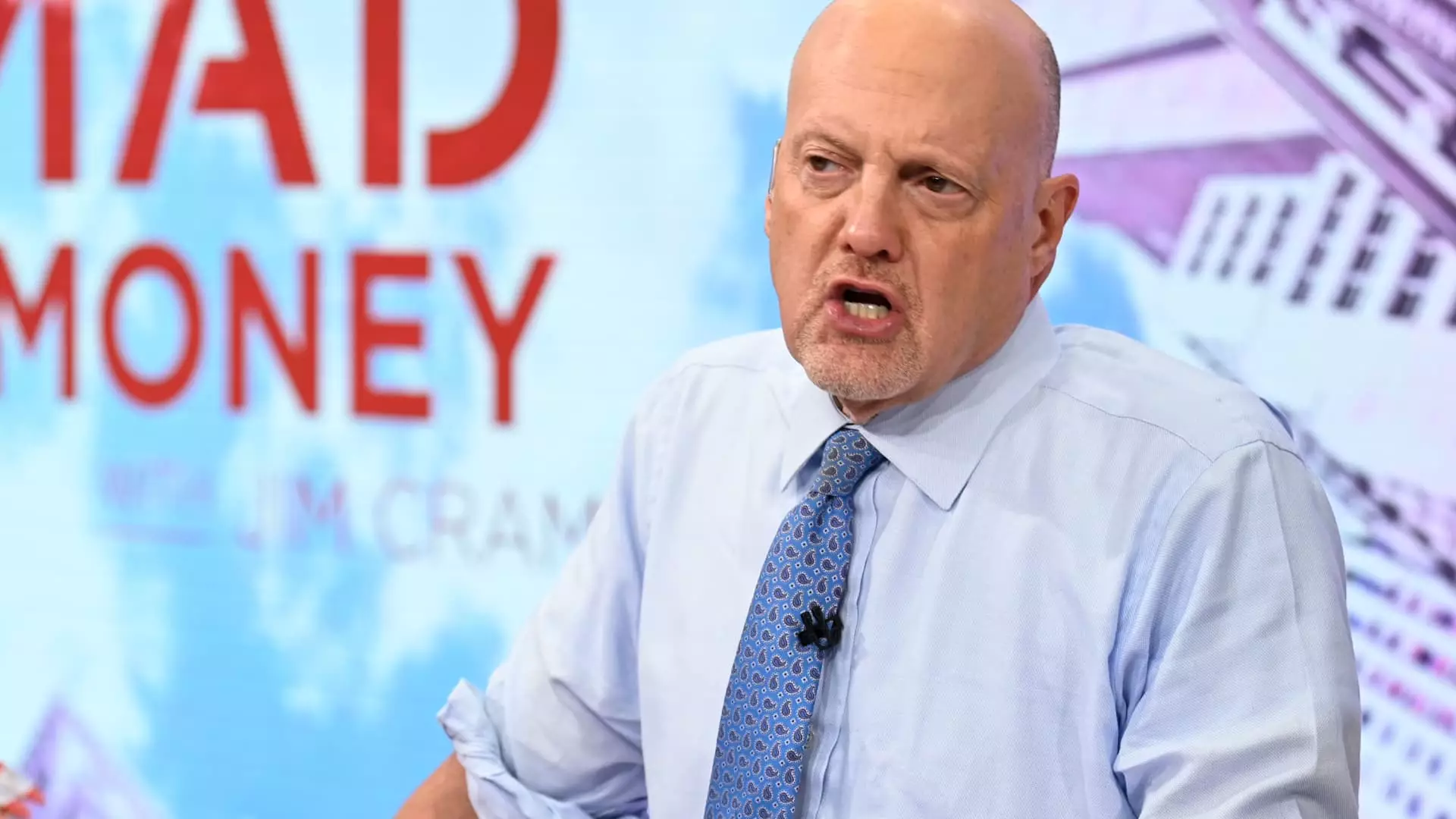As President Donald Trump’s new tariffs have sent shivers through global stock markets, analysts are bracing for the impending earnings reports that promise to shed light on how corporate America is coping with the fallout. With the specter of trade wars looming large, next week’s earnings reports are not just mere numbers; they are indicative of a much deeper malaise affecting American businesses. Jim Cramer, a seasoned commentator on market conditions, emphasizes that the upcoming earnings season will be critical, but not simply for its fiscal revelations. Rather, it remains entangled with the unpredictable machinations of presidential decision-making.
The cumulative uncertainty generated by Trump’s aggressive tariff policy casts a long shadow over market performance. Investors are being forced to play a guessing game—will Trump offer respite to beleaguered trading partners, or will he double down, pushing the economy further towards instability? This stark dichotomy leaves little room for optimism. The prospect of a devastating market downturn, reminiscent of Black Monday in 1987, is no idle threat but a very real consequence of stubborn policy enforcement.
Corporate Earnings: A Double-Edged Sword
While the immediate outcomes of these earnings reports will be important, the narratives woven by those reports are just as critical. Levi Strauss, a well-known retailer, is poised to release its earnings alongside the broader implications of tariffs on manufacturing. Its dependency on markets within tariff-impacted countries like Japan and Mexico raises grave concerns over profitability. Previous instances of poor guidance have seen the stock punished excessively, suggesting that any signs of weakness could unleash fresh panic in an already jittery market.
Conversely, companies like PVH have reported gratifying earnings, providing a flicker of hope. But one must consider whether such results can be replicated across sectors vulnerable to tariff impacts. Will Levi Strauss find itself in the same boat, subject to harsh economic realities, or will it defy pessimism, driven by savvy corporate strategies?
Consumer Confidence: The Silent Casualty
As companies such as Walgreens and egg producer Cal-Maine prepare to detail their quarterly outcomes, the broader consumer sentiment could emerge as the real casualty in this economic battle. The spike in egg prices due to various environmental and economic factors calls into question the resilience of the consumer market. With inflation seemingly on a relentless upward trend, the psychological aspect of consumer confidence needs to be addressed—how much longer can people be expected to endure rising costs without expressing meaningful backlash?
More critically, consumer sentiment is inextricably linked to corporate performance. Delta Air Lines, which is set to report soon, embodies a sector that thrives on consumer confidence. Cramer points out that even if the airline beats expectations, negative economic indicators could overshadow optimistic results. When the travel industry falters, it doesn’t merely reflect in stock prices; it resonates deeply throughout the economy.
The Federal Reserve’s Tightrope Walk
The looming inflationary pressures compounded by Trump’s tariff policies present a complex dilemma for the Federal Reserve. As the Bureau of Labor Statistics prepares to release the latest consumer price index, the Fed will find itself at a critical juncture. Unwieldy pricing pressures from tariffs might force an unwilling Federal Reserve to consider lowering interest rates. Yet, such a move could trigger additional economic disturbances, further exacerbating the market’s precarious state.
This juggling act is compounded by the reality that even institutions with strong fundamentals—like JPMorgan Chase and Wells Fargo—are suffering in the wake of tariff-induced economic unease. The notion that even these financial behemoths could see their stocks dragged down underscores the fragility of the current economic landscape.
A Call to Action: Leadership in Crisis
In this tumultuous environment, the need for decisive leadership has never been greater. Cramer’s distress signals regarding Trump’s inaction hang over the market like a dark cloud. The constructive evolution of the business landscape hinges not merely on performance numbers but the broader context of government intervention and policy adjustment. Will the president prioritize radical action to recalibrate this precarious situation, or will he stubbornly cling to a course fraught with peril?
The real question lies not only in the performance metrics of corporations but in how they are fortified against the stormy seas created by governmental decisions. The success of the upcoming earnings season may well rest on the hope that action will be taken—not just by corporations, but from the highest levels of government.

